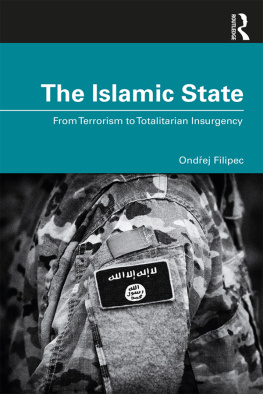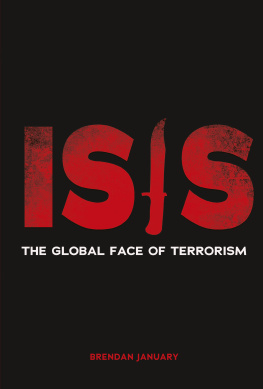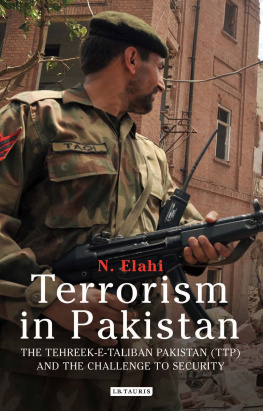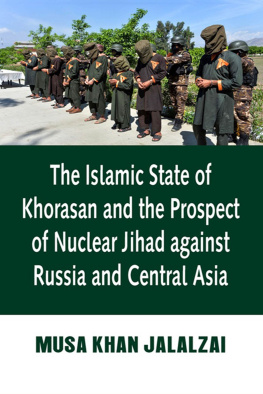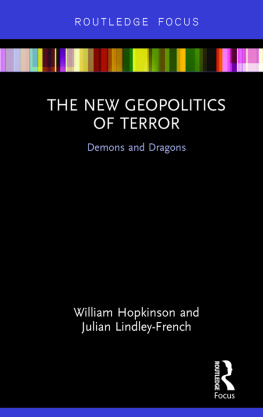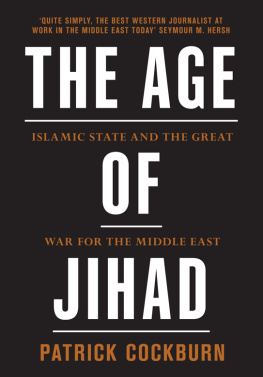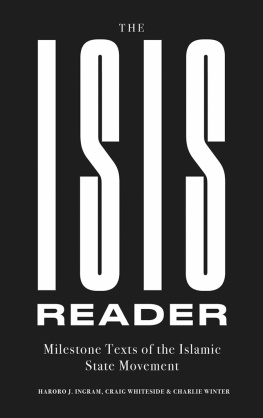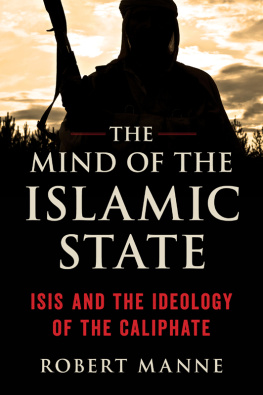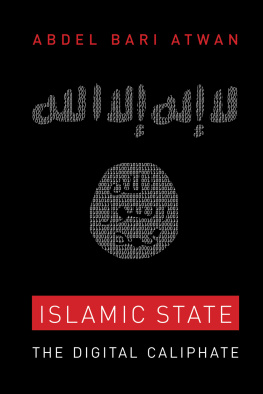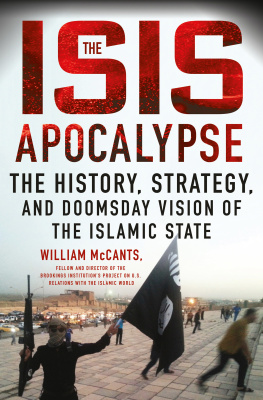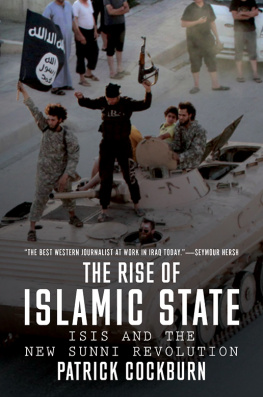THE ISLAMIC STATE
The Islamic State analyzes the transformation of ISIS (Daesh) from an underground insurgent organization to a quasi-state entity. It traces the genesis and evolution of what may be interpreted as a revolutionary war aimed at the creation and expansion of a new society and world order in the ruins of Syria and Iraq.
This book:
- Analyzes the regimes totalitarian features including structure, ideology, propaganda, and violence;
- Examines its ideology with a focus on radical Islamism and Salafi-jihadism;
- Studies the economics behind its continued existence; and
- Explores the attitude of key state and non-state actors, especially Russia, USA, and the Global Coalition, towards Daesh.
An indispensable guide to the study of modern terrorism, this book will be of great interest to students and researchers of Middle East studies, terrorism, with a focus on ISIS, military and strategic studies, politics and international relations, as well as general readers.
Ondej Filipec is Assistant Professor at the Faculty of Law, Palack University in Olomouc, Czech Republic. His research interests include international relations, specifically security studies with a focus on terrorism, weapons of mass destruction, and irregular migration. He has authored several monographs and scientific articles and is a regular contributor to the Panorama of Global Security Environment published by the Strategic Policy Institute (STRATPOL). He is also on the international editorial board of the Slovak Journal of Political Sciences and member of the Czech Association of European Studies (CAES). He is currently working on his habilitation dedicated to multidimensional analysis of counter-terrorism policies in the EU countries.
First published 2020
by Routledge
2 Park Square, Milton Park, Abingdon, Oxon OX14 4RN
and by Routledge
52 Vanderbilt Avenue, New York, NY 10017
Routledge is an imprint of the Taylor & Francis Group, an informa business
2020 Ondej Filipec
The right of Ondej Filipec to be identified as author of this work has been asserted by him in accordance with sections 77 and 78 of the Copyright, Designs and Patents Act 1988.
All rights reserved. No part of this book may be reprinted or reproduced or utilised in any form or by any electronic, mechanical, or other means, now known or hereafter invented, including photocopying and recording, or in any information storage or retrieval system, without permission in writing from the publishers.
Trademark notice: Product or corporate names may be trademarks or registered trademarks, and are used only for identification and explanation without intent to infringe.
British Library Cataloguing-in-Publication Data
A catalogue record for this book is available from the British Library
Library of Congress Cataloging-in-Publication Data
Names: Filipec, Ondrej, 1986 author.
Title: The Islamic State: : from terrorism to totalitarian insurgency / Ondrej Filipec.
Identifiers: LCCN 2019051554 (print) | LCCN 2019051555 (ebook) | ISBN 9781138364936 (hardback) | ISBN 9781003025139 (ebook)
Subjects: LCSH: IS (Organization) | Islamic fundamentalism. | Salafiyah. | Jihad. | TerrorismReligious aspectsIslam.
Classification: LCC HV6433.I722 F55 2020 (print) | LCC HV6433.I722 (ebook) | DDC 363.325dc23
LC record available at https://lccn.loc.gov/2019051554
LC ebook record available at https://lccn.loc.gov/2019051555
ISBN: 978-1-138-36493-6 (hbk)
ISBN: 978-0-367-45763-1 (pbk)
ISBN: 978-1-003-02513-9 (ebk)
Typeset in Bembo
by Apex CoVantage, LLC
I would like to thank many people who helped me to finish this book. Its birth was not an easy task as the research subject evolved very fast and soon there were many very interesting academic publications published faster than my own. Also, the critical voice of anonymous reviewers hopefully contributed to the increased quality of this publication. Their constructive feedback helped me to go through the most challenging parts of the topic and deal with it in a much more complex way than I had ever expected. Special thanks belongs to Shoma Choudhury, for her patient and kind guidance during the process of publication. I also thank various people with whom I have consulted the issue, especially my colleagues from the Faculty of Law, Palack University in Olomouc in the Czech Republic and colleagues from the Faculty of Social Sciences, University of Ss. Cyril and Methodius in Trnava, Slovakia. Especially to counterterrorism expert professor Jozef Klavec, international security expert Aaron T. Walter, my colleagues Dr Petra Mnkov who provided many comments regarding the non-democratic regimes and Dr Lucie Tungul, for debates on various actors involved in the fight against Daesh. I would like to give thanks also to Mohammed Bibani, for his kind help with some Arabic terms and to Hazhar Jamali. I also give thanks to Dr Viktor Bielicky from the Department of Middle Eastern Studies at Faculty of Arts, Charles University in Prague for his linguistic help with the transliteration and to Mr Ian Bell from the Faculty of Law, Palack University in Olomouc for making linguistic corrections to the manuscript. There are also countless authors who shall be awarded the credit as their publications contributes to a better understanding of Daesh and without them this book would have been impossible to write. Similarly, credit shall be awarded to countless journalists who entered dangerous areas to report about Daesh. Hopefully, this book will be another small peace on the way to leading to a deeper knowledge and will be appreciated by all those dealing with international security.
Although many people helped me with the book, all mistakes are my own.

